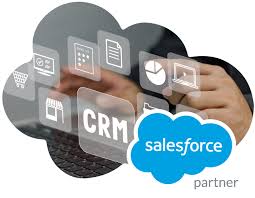Businesses in India juggle a ton of tools these days—sales, marketing, finance, customer service, analytics—the list never ends. The real headache starts when these systems don’t talk to each other. Suddenly, your teams are drowning in manual work, fixing data mistakes, and struggling to make quick decisions. That’s exactly why Salesforce integration services matter so much for modern Indian companies.
Maybe you’re talking to a Salesforce consultant in India, thinking about a full CRM overhaul, or looking to bring a Salesforce developer on board. Whatever the case, hooking up your different systems with Salesforce just makes life easier. You get smoother workflows, better data, and one clear view of your customers.
This blog dives into why Salesforce integration is such a big deal, how it actually works, and what you should keep in mind while picking a Salesforce consulting partner in India.
Why Indian Businesses Need Salesforce Integration
Let’s be real—most companies here use a mix of billing systems, ERPs, HRMS platforms, e-commerce, marketing tools, plus a few custom apps. Without integration, you end up with:
- Scattered data
- Teams doing the same work twice
- Slow, messy reporting
- A frustrating customer experience
Salesforce integration changes the game. It connects all those platforms so everything feels like one system. Work with the right Salesforce consultants in India and you can sync your data in real time and automate entire business processes.
What You Get from Salesforce Integration
A Single Source of Truth
Everyone works off the same, up-to-date data—no more confusion between sales, marketing, or support.
A Better Customer Experience
Connected systems let you track every step of your customer’s journey, personalize your outreach, and respond way faster. That’s huge in today’s competitive market.
Streamlined Workflows & Automation
A good Salesforce developer in India can set up automated workflows that cut down on manual tasks and let your team focus on what matters.
Accurate Data for Smarter Decisions
You get real-time insights so managers can actually trust the numbers they use to make decisions.
Stronger Team Collaboration
With everything synced, every team has a clear view of customer activity, orders, and support tickets.
Popular Salesforce Integrations in India
Here’s where Indian companies usually connect Salesforce:
ERP Systems (SAP, Oracle, Tally, Zoho Books)
Sync finance, inventory, and order details.
E-commerce Platforms (Shopify, Magento, WooCommerce)
Track orders, returns, and shipping info right inside Salesforce.
Marketing Tools (Mailchimp, HubSpot, Marketo)
Get marketing and sales on the same page instantly.
Communication Tools (WhatsApp Business, Slack, MS Teams)
Make cross-team conversations a breeze.
Custom Apps and Legacy Systems
Smooth out your data flow with custom integrations.
How Salesforce Integration Works
A solid Salesforce consulting partner in India will usually pick the right integration method based on your needs:
API-Based Integration
Best for newer apps—secure, fast, and scalable.
Middleware Integration
Tools like MuleSoft, Dell Boomi, or Jitterbit connect bigger, more complex systems.
Native App Integrations
Plug-and-play solutions through Salesforce AppExchange.
Custom Code Integrations
For those unique or tricky workflows, a skilled Salesforce developer in India can build something just for you.
Choosing the Right Salesforce Consultant in India
Picking your partner makes all the difference. Here’s what to look for:
Real Experience
They’ve handled integrations for different industries and have the results to prove it.
Certified Developers
You want a team that knows APIs, automation, and custom development inside and out.
Industry Know-How
Every field—retail, finance, healthcare, manufacturing—has its own challenges. Your partner should get yours.
Long-Term Support
Look for someone who’s there for the long haul, ready to help and optimize as you grow.
A Clear Process
You should know what to expect, from discovery and planning to integration, testing, deployment, and ongoing support.
Biggest Salesforce Integration Challenges (and How to Fix Them)
Data Silos
Break them down with careful mapping and real-time syncing.
Bad Data Quality
Set up validation rules and automate clean-ups.
Old Systems
Custom connectors help your legacy tech play nice with Salesforce.
Security Worries
Use Salesforce OAuth, encrypted connections, and strict access controls to keep data safe.
Final Thoughts
At this point, Salesforce integration isn’t just a nice-to-have—it’s the backbone of any business that wants to grow fast and smart in India. With the right Salesforce consultant and developer on your side, you can build a connected system that delivers a better customer experience, ramps up productivity, and moves your company forward.


